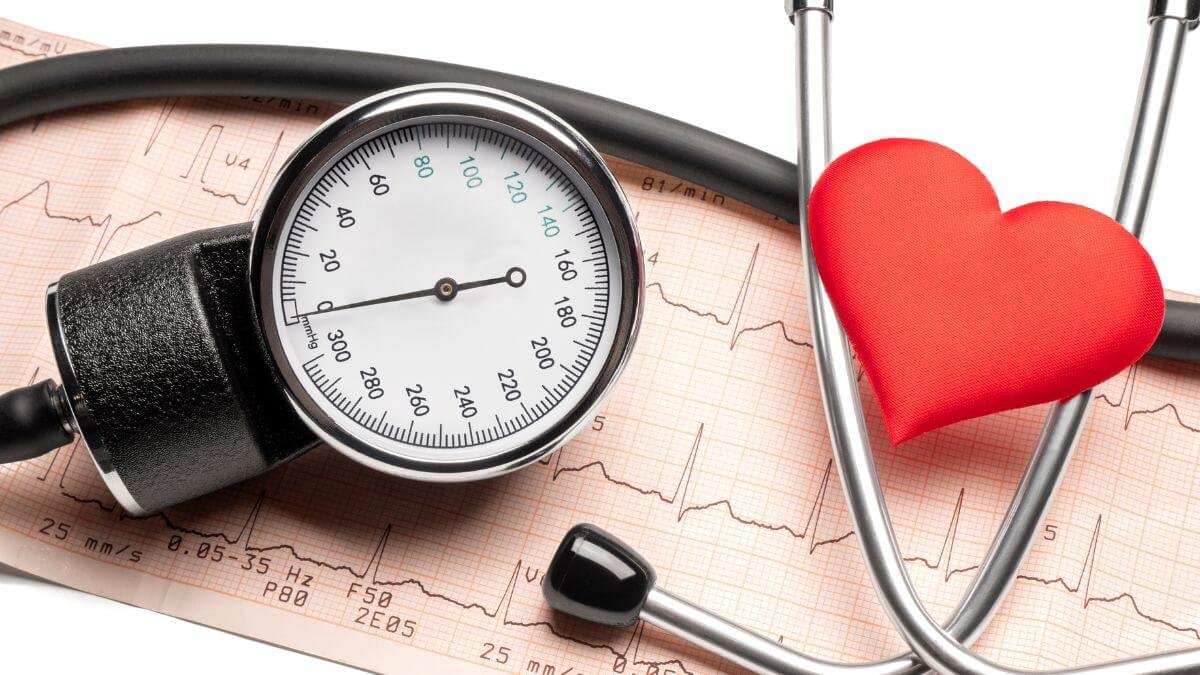Getting Started: High Blood Pressure ICD 10 Code
The term “puerperium” may also be relevant in specific coding scenarios. high blood pressure ICD 10 may seem like an obscure, bureaucratic label reserved only for hospitals or insurance paperwork. But in truth, it plays a pivotal role in modern healthcare, especially in managing resistant hypertension. High blood pressure, also known as hypertension, affects over 1.28 billion adults globally, and it is a leading risk factor for cardiovascular diseases such as heart attack, stroke, and kidney failure. The ICD 10 code for high blood pressure is the digital key that unlocks efficient communication between healthcare providers, insurers, researchers, and global health systems, especially in cases of stage 1 through stage 4 chronic kidney disease.
You might like:. NOVOTENOL
In today’s digital and data-driven medical world, proper classification through ICD 10 codes ensures streamlined patient care, accurate diagnosis tracking, and effective public health management, particularly for conditions like hypertensive encephalopathy. A small error in coding hypertension can lead to billing complications, medical record discrepancies, or even treatment misdirection. Therefore, understanding the high blood pressure ICD 10 code isn’t just for coders—it is an essential piece of knowledge for clinicians, students, and healthcare administrators alike.
Neste artigo, você encontrará um guia abrangente sobre o código ICD 10 da hipertensão, seu uso adequado, benefícios, armadilhas comuns e um panorama de como ele se encaixa na engrenagem maior do sistema de saúde global.
What Is the High Blood Pressure ICD 10 Code?
The ICD 10 (International Classification of Diseases, 10th Revision) includes codes relevant to maternal health and chronic conditions. is a global standard used by healthcare professionals to systematically record, report, and analyze health conditions. Developed by the World Health Organization (WHO), it encompasses more than 70,000 distinct codes, providing a granular classification for diseases, symptoms, abnormal findings, and external causes of injury or diseases.
When it comes to high blood pressure, the ICD 10 system helps medical professionals specify not just the presence of hypertension, but also the presence of related complications or affected organ systems.

Common ICD 10 Codes for Hypertension:
- I10 – Essential (primary) hypertension
- I11.0 is the ICD-10-CM diagnosis code for essential hypertension, which can lead to acute complications. – Hypertensive heart disease with heart failure
- I11.9 – Hypertensive heart disease without heart failure
- I12.0 – Hypertensive chronic kidney disease with stage 1 through 4 CKD
- I12.9 is often associated with left ventricular hypertrophy and hypertension. – Hypertensive CKD without stage specified
- I13.0 is used to classify hypertensive heart and chronic kidney disorders, which may lead to hypertensive encephalopathy, including intracranial complications. – Hypertensive heart and kidney disease with heart failure and stage 1-4 CKD
- I13.10 to I13.2, which can be used to record an episode of chronic kidney disease. – Combined conditions involving heart and renal complications, including those related to gestational hypertension.
Each of these codes tells a more precise story about the patient’s condition, guiding both clinical decision-making and health system logistics regarding their elevated blood pressure.
Benefits of Using the High Blood Pressure ICD 10 Code
The significance of accurate ICD 10 coding goes beyond administrative ease. It contributes to a vast array of systemic benefits that touch every level of healthcare delivery and public health, particularly in managing chronic conditions like end stage renal disease.
1. Precise Communication Among Providers
With patients often seeing multiple providers—from cardiologists to nephrologists to primary care physicians—accurate ICD 10 coding ensures continuity of care and helps manage elevated blood pressure effectively. It reduces confusion, repetition of tests, and helps build cohesive medical histories.
2. Optimized Insurance Reimbursement
Insurers rely heavily on ICD 10 codes to process claims. Proper documentation of hypertension, particularly when it coexists with heart or kidney disease, ensures full and timely reimbursement, avoiding delays or denials due to lack of specificity. High Blood Pressure ICD 10 Code
3. Improved Data for Public Health Surveillance
Hypertension is a silent epidemic that can lead to serious health issues, including neonatal hypertension. Governments and institutions use ICD 10-coded data to track disease prevalence, design interventions, and allocate funding for prevention programs related to heart and chronic kidney disease.
4. Enhanced Research and Clinical Trials
Clinical trials often depend on patient data filtered through ICD 10 codes. This classification enables researchers to identify cohorts with hypertension, including those with isolated incidental findings, and assess the efficacy of treatments or interventions.

How to Apply High Blood Pressure ICD 10 Codes in Practice
Correct coding involves more than just knowing the right code. It requires an analytical approach to each patient’s clinical profile and the context of their hypertension. High Blood Pressure ICD 10 Code
Step-by-Step Guide:
- Determine the Type of Hypertension and its relation to conditions like stage 4 chronic kidney disease.
- Is it important to consider type 1 excludes when coding? primary (essential) hypertension can lead to complications such as neonatal hypertension., or secondary Is this due to another condition, such as pre-existing hypertension complicating the situation?
- Is it Complicated cases, such as those involving type 2 excludes, require thorough documentation. by target organ damage?
- Identify Comorbid Conditions, including gestational hypertension.
- Does the patient also suffer from chronic kidney disease (CKD) or heart failure?
- Document both conditions clearly, particularly when dealing with hypertensive heart and chronic kidney disorders, including stage 1 through stage 4 chronic kidney disease.
- Select the Most Accurate Code
- I10 is appropriate only when hypertension exists without complications.
- If complications exist, such as acute conditions or nutritional deficiencies, select codes in the appropriate range. I11–I13, including codes for maternal and newborn health conditions. series of elevated blood pressure readings can indicate the need for more intensive management.
- Cross-reference with CPT and E/M codes to ensure accurate coding for both arterial and chronic conditions.
- Accurate diagnosis codes must align with Current Procedural Terminology (CPT) and Evaluation & Management (E/M) codes for claims to be valid.
- Utilize Coding Tools and Resources, including the 2025 ICD-10-CM updates.
- Use updated ICD 10 manuals, coding software, or resources like the CMS website to ensure accurate coding for newborns.
- Audit Regularly
- Conduct internal audits to ensure accuracy, especially in high-volume practices.
Common Comorbidities and Coding Implications
Hypertension often acts as a gateway disease. It quietly damages organs over years, leading to additional diagnoses that must be carefully captured in ICD 10. High Blood Pressure ICD 10 Code
1. Heart Failure (HF):
Combine I10 with I50.9, which may be relevant in cases of maternal health issues. if no relationship is stated, or use I11.0 if hypertension is causing the heart failure.
2. Chronic Kidney Disease (CKD):
- Use I12.0 for hypertension with CKD stage 1-4 or unspecified, particularly in cases of stage 5 chronic kidney disease, including isolated incidental findings.
- Add a separate N18.x code for the CKD stage. High Blood Pressure ICD 10 Code
3. Diabetes Mellitus:
If the patient has both hypertension and diabetes, careful documentation is needed to link each condition to its manifestations (e.g., nephropathy) and to specify if it involves stage 4 chronic kidney disease. High Blood Pressure ICD 10 Code

Coding Errors to Avoid with High Blood Pressure ICD 10
Despite best intentions, errors in ICD 10 hypertension coding are frequent and costly, particularly when using the ICD-10-CM diagnosis code. High Blood Pressure ICD 10 Code
- Using I10 when complications exist, such as left ventricular hypertrophy, is essential for accurate coding.
Many practitioners default to I10 even when heart or kidney complications are present. This leads to underreporting and revenue loss, especially in cases of pre-existing hypertension complicating patient care. - Lack of specificity in CKD stages
Always include the correct coding for conditions such as heart and chronic kidney disease. N18.x code. - Coding hypertension and HF separately is essential for accurate classification of disorders.
If one causes the other, use combination codes like I11.0. - Neglecting updates
ICD 10 codes are updated annually. Using outdated codes may result in claim denials, particularly in cases of admission for hypertensive emergencies. High Blood Pressure ICD 10 Code
The Final Takeway
Understanding and applying the high blood pressure ICD 10 Code properly is a crucial skill in healthcare today, particularly for conditions like end stage renal disease. With hypertension being one of the most underdiagnosed and mismanaged conditions globally, medical professionals must remain vigilant, precise, and up-to-date in their documentation.
Correct use of ICD 10 codes not only improves patient care but also enhances systemic efficiency, reduces administrative errors, and provides accurate data for public health research and policymaking.

FAQ – Frequently Asked Questions
What is the main for high blood pressure ICD 10 code?
I10 – Essential (primary) hypertension, used when no complications are documented, but may evolve into more severe syndromes.
What code should I use if a patient has both hypertension and heart failure?
Use I11.0 if hypertension is the underlying cause of the heart condition.
How do I code hypertension with chronic kidney disease?
Use I12.0 plus the appropriate CKD stage code, especially for stage 5 chronic kidney disease. (N18.x).
Do ICD 10 codes change each year?
Yes, CMS and WHO issue updates annually. Always review changes.
Can I still use I10 for a patient on blood pressure medication?
Yes. I10 can be used even if the condition is controlled with medication, provided there are no complications.
Why are ICD 10 codes important in billing?
They directly impact insurance reimbursement and legal documentation accuracy, especially regarding secondary hypertension.

I’m an economist with 15 years of experience in strategic planning and a lifelong passion for wellness and natural living. As a self-learner, I created Herbalife Balance to share insights on healthy eating, mindful habits, and an active lifestyle. Tennis enthusiast and nature lover, I believe in balance as a path to well-being. Through this blog, I help others live healthier, more conscious lives.









